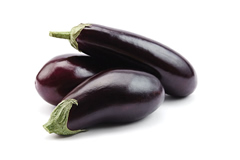Car exhaust may cause problems for city joggers and those with asthma, but toxic elements spewed out by Toronto’s vehicle traffic are not being absorbed by most locally grown vegetables in amounts that could be considered dangerous for human consumption, according to a new U of T study.
For almost two years, Clare Wiseman, a professor at the Centre for Environment, has been researching the risk to human health of produce grown in urban gardens. She and her mostly volunteer team have grown a variety of herbs and vegetables in areas chosen specifically because they have either high or low volumes of traffic, such as close to the Gardiner Expressway and atop the Galbraith building on the St. George Campus. Wiseman measured the levels of potentially hazardous metals – such as cadmium and lead – absorbed by the soils and the produce, which included Swiss chard, beets, eggplants and oregano.
Wiseman found that despite some “hot spots,” the amount of metals found in most of the herbs and vegetables were within acceptable limits (with the exception of lead levels in oregano and cadmium in eggplant grown close to traffic).
Although the study confirms that urban gardeners can safely consume most of what they grow, Wiseman also found that the so-called “organic triple mix soil” from a local garden supplier had higher levels of most trace metals, including cadmium, than the pre-existing soil it was intended to replace. She also found that the plants grown in the organic triple mix soil more readily took up available metals compared to plants cultivated in older soil. In light of this, Wiseman suggests that most gardeners save themselves money by simply planting in existing soils in their own backyards.
Ultimately, Wiseman’s advice to urban gardeners is simple: “By all means continue, but maybe not at a roadside location.” And, she says, always thoroughly wash your fruits and vegetables.






